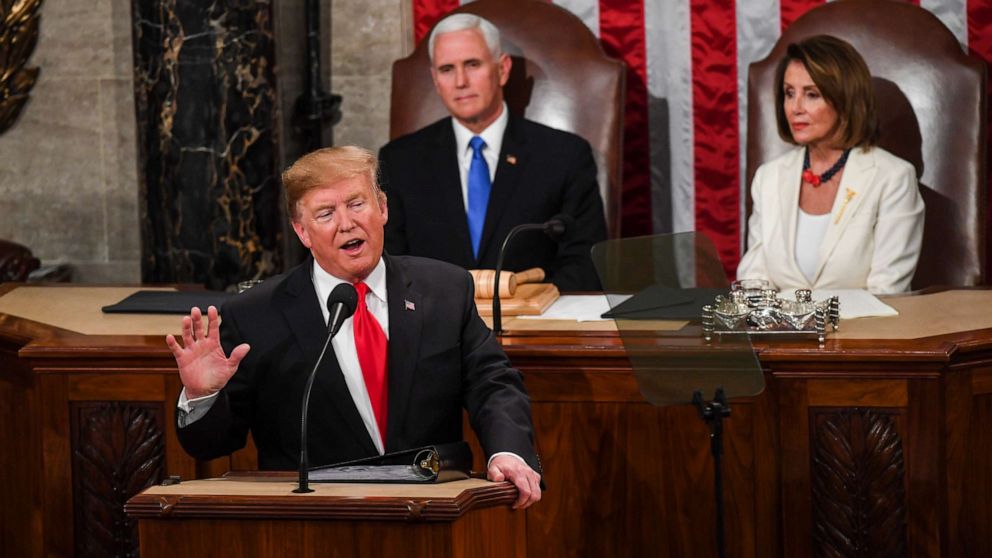By Jeresa Anderson, Staff Reporter

President Donald Trump addressed a highly divided Congress in his third State of the Union address amid recent impeachment articles brought up against him by Democrat lawmakers. In his address, Trump credited himself for the improving economy and prided himself on legislation focusing on African Americans.
“FOUR MORE YEARS,” chanted conservative lawmakers and guests as Donald Trump entered the House Chamber.
These words seemed to be a precursor to Trump’s opening optimistic tone regarding the economy and the state of the current Union.
Throughout the beginning of the speech, Trump made several claims that suggest the economy is operating at the highest levels in history. He gave great credit to himself on legislation that “shatter the mentality of American decline” and “revive the U.S. economy.”
In recent years, numbers coming out have been consistent with what Trump is suggesting. The U.S. economy did grow 2.3 percent last year. This percentage is also a decline from the growth of 2.9 percent which was a short-lived result the 2018 tax cut bill signed into law.
Throughout the speech, it was obvious that Trump wanted to combat his opposition that has criticized his efforts to make sure the government and economy worked for all American citizens.
“The unemployment rate for African Americans, Hispanic Americans and Asian Americans has reached the lowest levels in history,” claims Trump.
Part of this statement holds up. The African American unemployment rate, which he often touts, is at 5.9 percent. This is the lowest it has been since the government started keeping track in 1972.
Though Trump is able to say he played a role in the declining percentage, he, along with several conservative lawmakers, consistently poll poorly amongst African American men and women of all backgrounds.
In order to combat this, the Trump administration has worked with Congress to pass legislation appealing to African Americans and their votes. One of these issues is Criminal Justice Reform.
In late 2018, Trump signed the First Step Act, which is set to “improve criminal justice outcomes, as well as to reduce the size of the federal prison population while also creating mechanisms to maintain public safety,” by reducing sentences of some federal drug crimes and giving incentives for prisoners to participate in training programs.
Trump also recognized the bipartisan effort to get legislation passed on behalf of Historically Black Colleges and Universities.
“To expand equal opportunity, I am also proud that we achieved record and permanent funding for our nation’s historically black colleges and universities,” says Trump.
At the end of 2019, the Senate passed the FUTURE Act, which has set up annual funding of $255 million to HBCUs and also simplifies the Federal Application for Federal Student Aid for certain federal loan borrowers.
Financial sustainability is a big issue for many HBCUs, but this is still a bittersweet moment for many students.
“I think that it is interesting that Trump was easily able to take credit for the funding of HBCUs,” says Jenaiya Bowens, a sophomore Clinical Laboratory Science major at Howard University who also addresses concerns of misuse of funds.
“I love the idea that HBCUs will be getting funds forever, but that doesn’t mean the funds will be allocated correctly.”
This goes to show that Trump’s claims that the state of our Union is at an all-time high may not be true. How can our government operate at its best when voter efficacy and trust in the government is low? The president still has not been acquitted in his impeachment trial. He has also recently reached an approval rating at 49 percent. Congress’ approval rating has been as low as 18 percent in recent years.
This will all play out in the elections for both Democrats and Republicans. Trump may have been able to boast about his economic and social achievements, but voters are bringing more issues to the ballot than what he focused on. On the other side, Democrats will have to answer to all the missed opportunities to be the pioneers for their voters.

